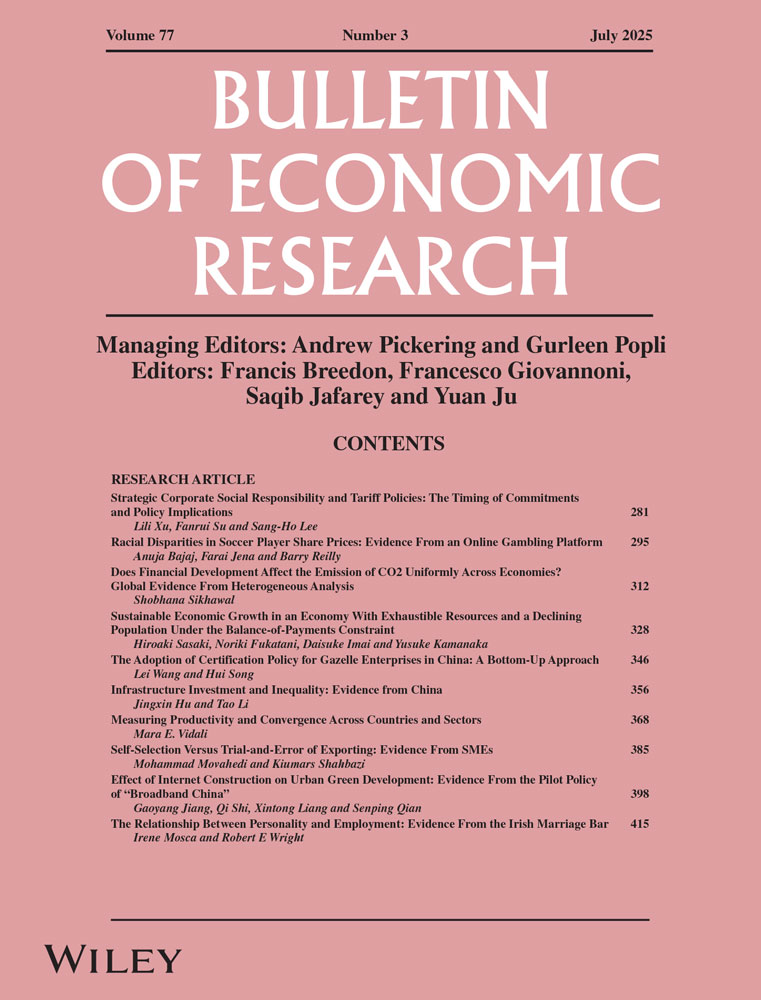Collective Goods, Common Agency, and Third-Party Intervention
Abstract
Voluntary contributions to multiple public goods may involve many contributors (principals) who condition their payments to a single provider (agent) based on realized provision. If the agent's efforts on these goods are unobservable, then a common agency problem results with a third-best outcome owing to agency costs, free riding, and competitive interests. The latter manifests itself in the principals punishing the agent for providing an alternative public good (for which they have no interest) to a different set of principals. Remedies may require multiple policy instruments unlike the standard prescription for the public good or common agency problem in isolation. Moreover, the sequence of actions is essential for addressing the combined problems.




